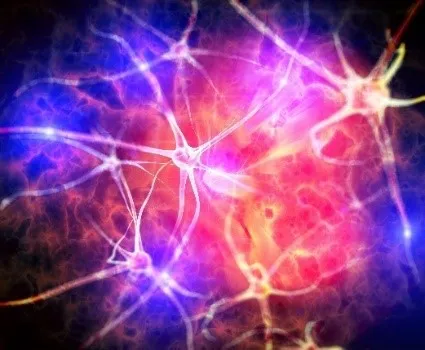Conditions
Our collaborative teams of doctors and specialists treat each condition with a whole body approach. With expertise across multiple fields and disciplines, we understand the complex relationships between the physical, emotional, and mental components impacting your health. Together, we’ll assess and address the root causes of your condition so that you feel your best—from head to toe.

Ways We Can Treat You
Knee Injury & Pain
Knee pain is one of our most common grievances—with the location and severity of knee pain dependent on the cause. Signs and symptoms of knee injury include swelling, stiffness, redness, weakness, popping or cracking noises, and the inability to straighten your knee.
Learn MoreBack Pain & Injury
One of the most common reasons for doctor’s visits, back pain can be concentrated in a region of your neck or back, or may radiate down legs. You also may find that your back pain worsens with walking, lifting, bending, and twisting motions. Another common pain experience, neck pain can be caused by stress and the tightening of muscles in the area, poor posture, or overuse or straining of your neck muscles. Some degenerative conditions can cause you to experience neck pain, which you might feel as pain directly in your neck or as pain radiating down your shoulders or arms.
Learn MoreArthritis
Arthritis causes inflammation in and the breaking down of your joints. These changes in your joints can cause you to experience swelling, pain, stiffness, tenderness, and decreased range in motion—with symptoms most commonly felt in your feet, hands, hips, knees, and lower back.
Learn MoreHeadaches & Migraines
One of the most common pain conditions you may experience, headaches cause pain in the head, face, upper neck, and shoulders, and range from mild and short-lived to severe and debilitating. Migraines are a type of extremely painful headache that cause you to feel intense, throbbing, and often debilitating headache pain. Often felt on one side of your head, migraines can last anywhere from a few hours to several days.
Learn MoreWounds, Lesions, and Ulcers
The wound healing process can be disrupted by a number of factors, resulting in persistent chronic wounds that become infected and do not heal. These wounds are commonly linked to diabetes, which negatively impacts immune system, nerve, and circulatory functions essential to the wound healing process.
Learn MoreNerve Pain, Numbness & Tingling
Your nerves send signals between your brain and spinal cord, and the rest of your body—including muscles, skin, arms, hands, legs, and feet. When your nerves are damaged or destroyed, they can’t effectively relay messages, and this malfunction can trigger painful numbness, tingling, weakness, and burning.
Learn MoreSciatica
Sciatica is characterized by pain felt along the sciatic nerve’s path–from your lower back, through your hips and buttocks, and down your leg. When the sciatic nerve is compressed, pinched, irritated, or inflamed, you experience pain ranging from mild to severe.
Learn MoreShoulder Pain
One of the most used–and overused–joints in your body, your shoulder is a complex joint comprising many bones, tendons, and muscles. The shoulder joint’s large range of motion makes it more susceptible to repetitive injury, strain, and everyday wear and tear.
Learn MoreTreatment for Thyroid Dysfunction
Thyroid dysfunction and disease prevent your thyroid gland from producing the right amount of hormones responsible for many vital bodily functions. Thyroid disorders can stem from a number of factors including genetics, autoimmune disease, inflammation of the thyroid gland, radiation treatments, and certain medications.
Learn MorePersonal Injury & Auto Accidents
The significant, and often violent, forces of a car crash can cause tremendous damage to your body as it’s slammed, crushed, bent, and twisted. Among the most common car crash injuries are bruising and contusions; broken bones; whiplash; neck and back trauma; concussion; traumatic brain injury; internal bleeding; and emotional trauma.
Learn MoreAthletic Recovery & Performance
Athletic injuries come in all shapes and sizes—each with its own set of symptoms and complications. Among the most common athletic injuries you may experience are knee injuries, anterior cruciate ligament tears, groin and hamstring pulls, shoulder injuries, and shin splints.
Learn MoreHormone Imbalance
Your hormones are your body’s chemical messengers—controlling and managing hundreds of essential functions in your body. Sometimes, your glands produce too much or too little of a hormone—resulting in a hormone imbalance. A hormone imbalance can cause significant changes in how your body functions—triggering a range of health probems and symptoms such as changes in weight, blood pressure, sleep patterns, sex drive, and mood.
Learn MoreUnexplained Weight Gain
Unexplained Weight Gain can be discouraging and confusing, and often can’t be resolved by simply restricting calories and increasing exercise. There are many underlying factors—such as nutrient malabsorption, metabolism, genetics, and hormone imbalances—that significantly impact our propensity for weight loss.
Learn MoreDepression & Anxiety
When your automatic stress system is activated too often, your body suffers. Chronic stress can contribute to headaches, neck and back pain, stomach and digestive issues, a weakened immune system, high blood pressure, and weight fluctuations. Stress also can cause changes in the brain—impacting irritability, ability to focus, anger, sleeplessness, depression, and anxiety.
Learn MoreChronic & Cognitive Fatigue
Mental exhaustion, or cognitive fatigue, can happen when your mind is overloaded and overdriven, and can cause mental blocks, appetite fluctuations, insomnia, and irritability. The symptoms of cognitive fatigue overlap with those of chronic fatigue, which is unexplained extreme fatigue that lasts for more than six months. With chronic fatigue, you may suffer from memory, focus, and concentration issues, dizziness that worsens when you change position, and sleep that doesn’t replenish you.
Learn MoreSexual Dysfunction
Affecting men and women of all ages, sexual dsyfunction encompasses a set of conditions that cause you to experience persistent and recurrent difficulties with your sexual desire, response, orgasm, or with pain during intercourse.
Learn More


Payment & Insurance
We never want healthcare costs to be the barrier between the care you need and deserve. For your convenience, Anodyne clinics accept most major insurances, including Medicare, and offer flexible payment options.
Payment & Insurance


Maximizing Your Time So You Can Prioritize Your Health
These days, the constant stream of demands on your time can feel relentless—leaving little opportunity to seek the health care you need, let alone time to drive between specialists in pursuit of the resolution you deserve. It’s little wonder that our time constraints are consistently among the top barriers to maintaining our health. We believe you deserve doctors who understand the value of your time—who have intentionally designed their clinics to maximize your time so that you can prioritize your health. That’s why, at Anodyne, we bring the specialists to you. In each of our clinics, our multidisciplinary teams of doctors work together under one roof—supporting your health without sacrificing your time.
Who We AreYour Journey to Wellness Begins Here
Whether you’re struggling to diagnose a chronic pain condition or you’re pursuing wellness treatments to stay healthy and feel great, we’re here to support you at every step of your health care journey.


